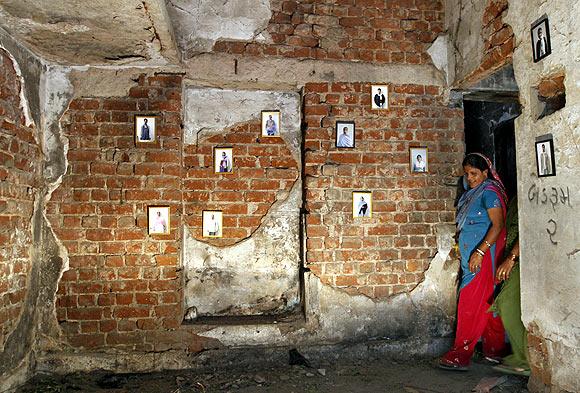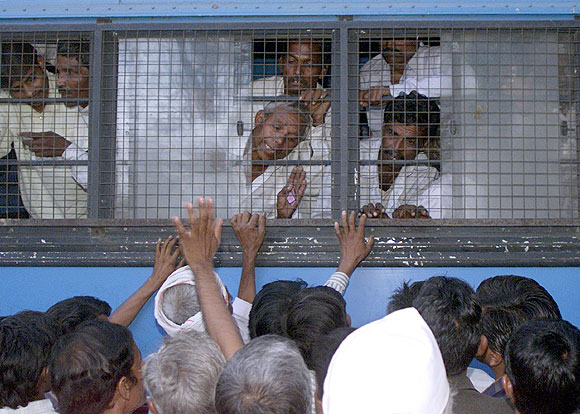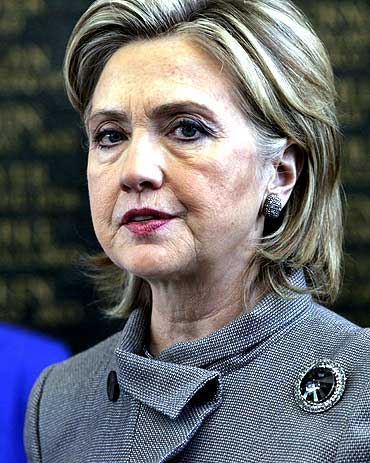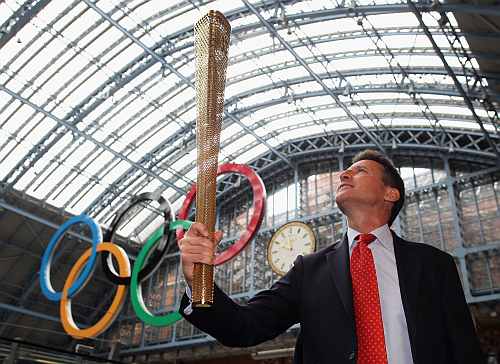
Voicing concern over the slow pace of proceedings in punishing perpetrators of the 2002 Gujarat riots, a United States report on international religious freedom has said that Muslims in the state "still fear" persecution.
The report claimed that despite the Congress-led national government's rejection of 'Hindutva', several Bharatiya Janata Party-ruled states continued to be influenced by the ideology.
The State Department, in the Congressional-mandated annual report on international religious freedom, said it "continued to express concern" to government officials, NGOs and religious leaders over the "slow pace" of bringing the perpetrators of the 2002 violence in Gujarat to justice.
...

Devoting a considerable portion in the India section of the report to the 2002 Gujarat riots, the State Department said civil society activists continued to express concern about the state government's failure to arrest those responsible for the violence.
"Media reports indicated some Muslims still feared repercussions from Hindu neighbours as they waited for the court cases to be resolved," it said, pointing out that several thousands still lived in refugee camps.
It claimed that several victims have accused the Special Investigation Team (SIT), appointed by the Supreme Court in March 2008, of pressuring them to dilute their testimonies.
"In many of the cases tried in Gujarat's lower courts, the accused were acquitted due to a lack of evidence or changes in the testimony. Three of nine major cases stemming from the 2002 Gujarat riots made partial progress during the year. The Supreme Court asked the SIT to probe these nine cases in March 2008," it pointed out.
"Hundreds of other court cases stemming from the 2002 violence (which were not in the purview of the SIT) remained unsettled," the report said.
The State Department cited the Supreme Court's direction to a trial court in Gujarat to probe whether Chief Minister Narendra Modi and 60 others could be prosecuted for their role in the riots and referred Zakia Jafri's complaint to the Gujarat state courts in the Gulberg Society massacre case.

"The trial court had not pronounced its verdict at the end of the year," said the report.
The International Religious Freedom Report for 2011 also listed the ban on cow slaughter and anti-conversion bills by the BJP-ruled states like Gujarat and Karnataka as developments influenced by Hindutva.
After the State Department released the report, Secretary of State Hillary Clinton said the Obama administration has "elevated" religious freedom as a diplomatic priority.
"Together with governments, international organisations, and civil society, we have worked to shape and implement
United Nations Human Rights Council Resolution 16/18, which seeks to protect people under attack or discriminated against because of their faith," Clinton said.
The US raises these issues at the highest levels in international settings, she said, adding she had personally discussed religious freedom in every region of the world, sometimes over and over again.
"We've appointed our first envoy to the Organization of Islamic Cooperation," Clinton noted in her address to the Carnegie Endowment.
"We've launched a strategic dialogue with civil society, in which we collaborate with religious leaders and their communities to promote religious freedom, conflict prevention and mitigation, development and inter-religious dialogue."
Beyond diplomacy, the US has expanded its assistance to individuals under attack because of their religious beliefs and to human rights activists working in hostile environments to promote religious freedom, Clinton said, adding that these men and women are doing vital, often dangerous work with great courage, and the US is proud to stand with them.

"As part of our human rights dialogue with China, for example, we've taken Chinese officials on site visits to see how religious organisations in our country provide valuable social services...," Clinton said.
"We're also taking the message of tolerance and inclusion to young people. A few years ago, Hannah Rosenthal, our Special Envoy to Monitor and Combat Anti-Semitism, and Farah Pandith, our Special Representative to Muslim communities, attended an OSCE tolerance summit together, and they came away with an idea," she said.
"They began asking young people to pledge to spend one just hour working with people who don't look like them or pray like them. Jews were encouraged to volunteer to clean a mosque, Muslims to volunteer to help elderly Christians get to church, and many other examples.
"The campaign, now called 2012 Hours Against Hate, has elicited commitments from young people around the world to spend tens of thousands of hours walking in someone else's shoes. It's even become one of the London Olympics' official initiatives," Clinton said.
...